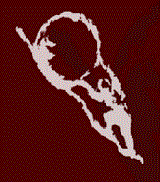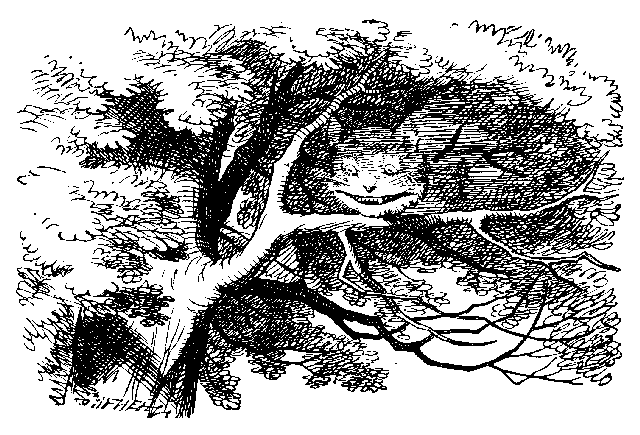

|
Deep Loss of a Fruitfly That tadpoles are fodder for pond-life is as natural as the leaves falling on the water in autumn; that flies get squidged is as ordinary as apples rotting in the orchard. One’s own death, on the other hand, seems most unnatural. It seems rather an error and an outrage; a cosmic crime; a reason to raise one’s fist and rebel against the regime that ordered this slaughter of innocents. Nature is a streamers-and-all, non-stop, cork-popping party of death...but that does not mean that death is right or good. Because life is so teeming with intentions and meanings, the death of each creature really is a catastrophe. But we must live with it anyway. Philosophers academic and amateur – which is to say, pretty much all of us – prefer to think that paradoxes must have solutions, that they are somehow just the wrong way of looking at things, or a muddle of grammar and syntax. But not this one. It is, as far as I can see, part of the nature of things. To take both sides seriously and to seek some way to live with them is part of what it is to be human; part of what it means to be a guest at the party of life and death. — More from Stephen Cave at Aeon Am not I / A fly like thee? / Or art not thou / A man like me? — Wm Blake |
1 August 2014
|
|
Where does happiness come from? No man believes that many-textured knowledge and skill – as a just idea of the solar system or the power of painting flesh, or of reading written harmonies – can come late and of a sudden; yet many will not stick at believing that happiness can come at any day and hour solely by a new disposition of events: though there is nought less capable of a magical production than a mortal’s happiness, which is mainly a complex of habitual relations and dispositions not to be wrought by news from foreign parts, or any whirling of fortune’s wheel for one on whose brow Time has written legibly. — George Eliot |
2 August 2014
|
|
The One Teaching Focus your attention on your perceptions, your thoughts, your feelings. Maintain an open mind and heart in order to receive the message free of preconceptions, and learn all that you can. Full stop. Fellow travelers who share with you their experience of this practice are to be welcomed if you find their experience helps or inspires you to maintain this difficult practice. Teachers who continue their meditation instruction with, “…and when you do this, you will find that…” are to be avoided. — Josh Mitteldorf |
3 August 2014
|
|
Philosophy It is from the fear of death that all cognition of the All begins. Philosophy has the audacity to cast off the fear of the earthly, to remove from death its poisonous sting, from Hades his pestilential breath. All that is mortal lives in this fear of death; every new birth multiplies the fear for a new reason, for it multiplies that which is mortal. The womb of the inexhaustible earth ceaselessly gives birth to what is new... But philosophy refutes these earthly fears. It breaks free above the grave that opens up under our feet before each step. It abandons the body to the power of the abyss, but above it the free soul floats off in the wind. That the fear of death knows nothing of such a separation in body and soul, that it yells I, I, I and wants to hear nothing about a deflection onto a mere ‘body’– matters little to philosophy. That man may crawl like a worm into the folds of the naked earth before the whizzing projectiles of blind, pitiless death, or that there he may feel as violently inevitable that which he never feels otherwise: his I would be only an It if it were to die, and he my cry out his I with every cry still in his throat against the Pitiless One by whom he is threatened with such an unimaginable annihilation – upon all this misery, philosophy smiles its empty smile, and with its outstretched index finger shows the creature, whose limbs are trembling in fear for its life in this world, a world beyond, of which it wants to know nothing at all. For man does not at all want to escape from some chain; he wants to stay, he wants – to live. — Franz Rosenzweig, from The Star of Redemption, tr Barbara Ellen Galli |
4 August 2014
|
|
Inner Peace and The Other Kind In the first few weeks of World War I, Evelyn Underhill published a little book about mysticism. Practical Mysticism: A Little Book for Normal People was written during the last months of peace. But was a book about mysticism for the common man really necessary when the whole world was collapsing? Underhill decided it was, more than ever. The contemplative life, wrote Underhill, is not some dreamy, silly pursuit; “a game fit only for idle women and inferior poets.” Neither is it a pious “special career, involving abstraction from the world of things.” Mysticism is a call to arms. It is a challenge to engage with true reality, to see things are they really are. “The mystical consciousness,” Underhill wrote in her Preface, “has the power of lifting those who possess it to a plane of reality which no struggle, no cruelty, can disturb: of conferring a certitude which no catastrophe can wreck. Yet it does not wrap its initiates in a selfish and otherworldly calm, isolate them from the pain and effort of the common life. Rather, it gives them renewed vitality; administering to the human spirit not – as some suppose – a soothing draught, but the most powerful of stimulants.” |
5 August 2014
|
|
Consolation of Age I have climb’d to the snows of Age, and I gaze at a field in the Past. — Alfred, Lord Tennyson, born this day in 1809 |
6 August 2014
|
|
from WarIsACrime.org We’ve arrived at another anniversary of the nuclear bombs, and 50 years since the Gulf of Tonkin incident didn’t happen, and 100 years since the war to end all wars began not ending all wars. But among the signs that another way is possible: the U.S. House has rejected any new presidential war on Iraq. Here are some new tools to set us on a different course: Music video: Before the End of War — from David Swanson’s WarIsACrime.org |
7 August 2014
|
|
Stream Lines When the Uniting Personal-to-Source vehicle — Allan Morelock |
8 August 2014
|
|
Adapt or die The snake that cannot shed its skin perishes. Likewise those spirits who are prevented from changing their opinions; they cease to be spirits. — Friedrich Nietzsche |
9 August 2014
|
|
Every encounter an occasion for delight. Every soul a new cause for celebration. — Josh Mitteldorf |
10 August 2014
|
|
Art and Activism Caledonia Curry ( Swoon) started her career as a street artist, but quickly leapfrogged to the attention of gallerists and museum curators, which let her expand to installation and performance art, often with an activist, progressive bent. Her intricate paper-cut portraits and cityscapes, often affixed to walls in hardscrabble places, are meant to disintegrate in place, a refrain to the life around them. Meanwhile, her socially minded work has focused on building cultural hubs for far-flung artistically welcoming communities. |
11 August 2014
|
|
The unstoppable compulsion to act, in bigger and wiser ways than you knew possible, has already been set in motion. I’m urging you to trust in that. — Charles Eisenstein Not blaming ourselves for mistakes is the flip side of not taking credit for our acts of courage or creativity or leadership, or our good ideas. |
12 August 2014
|
|
Healing power of the mind In a 2008 study, Harvard Medical School researcher Ted Kaptchuk devised a clever strategy for testing his volunteers’ response to varying levels of therapeutic ritual. The study focused on irritable bowel syndrome, a painful disorder that costs more than $40 billion a year worldwide to treat. First the volunteers were placed randomly in one of three groups. One group was simply put on a waiting list; researchers know that some patients get better just because they sign up for a trial. Another group received placebo treatment from a clinician who declined to engage in small talk. Volunteers in the third group got the same sham treatment from a clinician who asked them questions about symptoms, outlined the causes of IBS, and displayed optimism about their condition. Not surprisingly, the health of those in the third group improved most. In fact, just by participating in the trial, volunteers in this high-interaction group got as much relief as did people taking the two leading prescription drugs for IBS. And the benefits of their bogus treatment persisted for weeks afterward, contrary to the belief—widespread in the pharmaceutical industry—that the placebo response is short-lived. Studies like this open the door to hybrid treatment strategies that exploit the placebo effect to make real drugs safer and more effective. This article is about evidence that the placebo effect is getting stronger. People expect more from their medications and they give it to themselves, regardless of what the medication does. In tests across many areas of medicine, untrained mind and clinical attention seem to be better healers than the best remedies that modern pharmacology can provide. So what would happen if we trained and focused the mind for healing? What would happen if we reversed the trend of increasing patient loads for doctors, depriving them of time with their patients? What would happen if we set out to combine medical interventions with caring and empathy? – JJM |
13 August 2014
|
|
Faith I want a faith past arguments; one which, whether I can prove it or not to the satisfaction of the lawyers, I believe to my own satisfaction, and act on it as undoubtingly and unreasoningly as I do upon my own newly-rediscovered personal identity. I don't want to possess a faith. I want a faith which will possess me. And if I ever arrived at such a one, believe me, it would be by some such practical demonstration as this very tent has given me. — Charles Kingsley |
14 August 2014
|
|
Who knew? When my children were young, I read them books by E. Nesbit. I had no idea she wrote a dozen novels for adults and hundreds of poems, well-crafted and original. THOUGH you and I so long have been so near— — E. Nesbit, born this day in 1858 Here is a longish poem of Nesbit that I discovered today, a story with unexpected twists, well worth reading though it doesn’t fit here. |
15 August 2014
|
|
A respect for how things were done in the past I have no respect for authority. I am impatient, and always looking for a better way of doing things. Yesterday at the Brooklyn Museum, my fancies were caught by an Egyptian urn, 4000 years old, carved of solid stone. Not pottery, not glass. It was not molded, but carved, hollowed out smoothly, with a narrow neck and a wide belly. I imagined grinding alabaster with a tool made of wood and sand. There was no iron, no glue. They had pottery, fired clay. It had to be a thousand times easier. Someone patiently chipped and ground and polished this stone for many days. Was it an artisan? A slave? Did he think there were better uses for his time? It was a window into a different approach to life. |
16 August 2014
|
|
The unexamined life is not worth living. The unlived life is not worth examining. Immerse yourself to your ears in passionate engagement. |
17 August 2014
|
|
Taktakishvili Listen to young flutist Emma Resmini play the 3rd movement of the Flute Sonata of Otar Taktakishvili. |
18 August 2014
|
|
Those who are awake live in a constant state of amazement. — Jack Kornfield |
19 August 2014
|
|
Leave the door open for the unknown, the door into the dark. That’s where the most important things come from, where you yourself came from, and where you will go. — Rebecca Solnit “How will you go about finding that thing, the nature of which is totally unknown to you?” —Meno |
20 August 2014
|
|
What’s it like to be an octopus? An octopus can taste with its skin, and very likely can see with its skin as well. How else to explain the fact that octopuses placed on an unfamiliar background instantly adjust their coloration to adopt the pattern under them? In the wild, the octopus is actively discovering his environment, not waiting for it to hit him. The animal makes the decision to go out and get information, figures out how to get the information, gathers it, uses it, stores it. This has a great deal to do with consciousness. When Athena looked into my eyes, what was she thinking? |
21 August 2014
|
|
Rigpa If you find that meditation does not come easily in your city room, be inventive and go out into nature. Nature is always an unfailing fountain of inspiration. To calm your mind, go for a walk at dawn in the park, or watch the dew on a rose in a garden. Lie on the ground and gaze up into the sky, and let your mind expand into its spaciousness. Let the sky outside awaken a sky inside your mind. Stand by a stream and mingle your mind with its rushing; become one with its ceaseless sound. Sit by a waterfall and let its healing laughter purify your spirit. Walk on a beach and take the sea wind full and sweet against your face. Celebrate and use the beauty of moonlight to poise your mind. Sit by a lake or in a garden and, breathing quietly, let your mind fall silent as the moon comes up majestically and slowly in the cloudless night. |
22 August 2014
|
|
Greek Koans “Alas, friend! I have begun to distrust, of late, my power of solving riddles. After all, why should they be solved? What matters one more mystery in a world of mysteries?” — Charles Kingsley |
23 August 2014
|
|
How heavenly the afterlife? The task is done, the battle won, — Josh Mitteldorf |
24 August 2014
|
|
An Earth Centric paradigm shift will challenge many of Western civilizations’ underlying foundations, such as hierarchic ordering, viewing the universe as a mechanical system, and the belief that society must be a competitive struggle. This paradigm realignment challenges the deeply held belief that our species is above nature, and nature’s only value is being instrumental for our usage wants. We are heading toward culture in which mankind is just a strand in the web of life. We should be caretakers of this world, all of its life forms, and the earth itself, simply holding it in trust for posterity. In no way is this indicating that the scientific revolution was a waste of time… |
25 August 2014
|
|
Maria Schneider When I switched on a light in the barn loft — Ted Kooser Listen to When I switched on a light |
26 August 2014
|
|
Articulate There are many ways in which the thing I am trying in vain to say may be |
27 August 2014
|
|
Smart molecules There are two copies of every chromosome in each of our cells. Because one comes from Mom and the other from Dad, they are not quite the same, but almost. Chromosomes are constantly being wound and unwound, opened to be read and closed for safe-keeping. Frequently, they break and information is lost at the site of damage. When that happens, the paired chromosome is consulted. The corresponding place is found, and the missing section is copied from the other. Each chromosome is thus a backup copy for the other. The amazing thing is that there is no little man inside the cell, not even a cell or organelle. This work is being done by a molecule. More details can be found in this Wikipedia article on Homologous Recombination |
28 August 2014
|
|
The Moment The moment when, after many years — Margaret Atwood |
29 August 2014
|
|
Informed Optimism of Amory Lovins Amory is an intellectual's intellectual who has the knack for making entertainment out of statistics. He is an evergreen optimist amid fatalists on global warming and ecosystem collapse. Amory preaches that the economic forces working for against oil and gast consumption, for sustainable conservation and renewables are so powerful that despite all that government might do to screw it up, business competition will force us all onto a soft energy path. Watch a TED talk by Amory Lovins on energy stats, the next 40 years. |
30 August 2014
|
|
terram usque ad pulverem The Great Sequoia — Josh Mitteldorf |
31 August 2014
|





























